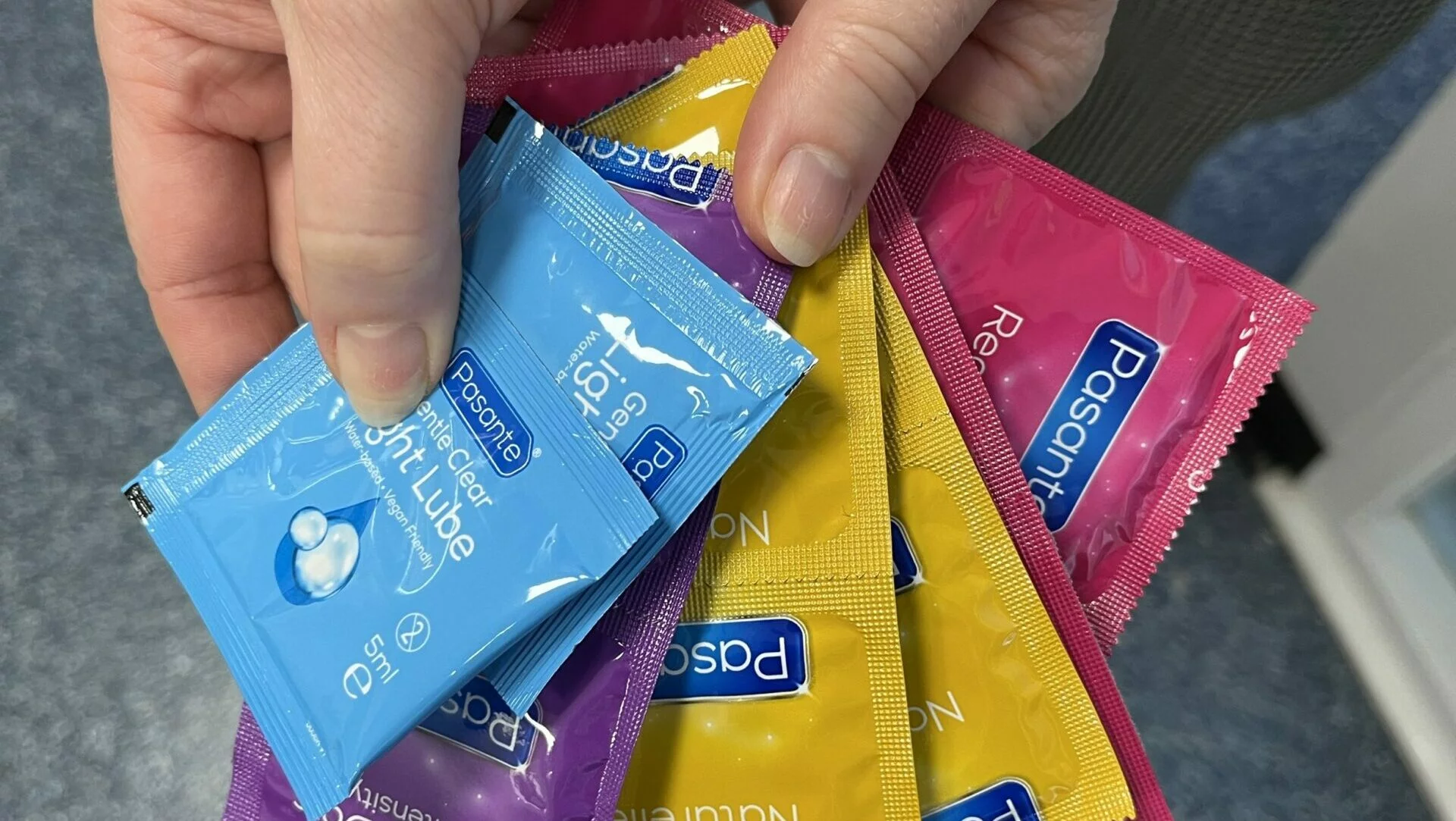Helen Anderson is Brook’s Senior Digital Innovation Manager. In this blog she explains why Condom Distribution Schemes are so vital and gives an overview of the work Brook is doing to make sure they remain relevant and effective for young people.
Condoms remain a cornerstone of safer sex.
They are the only method of contraception that protects against STIs, they are readily available and relevant for many types of sex.
Our commitment to condom access and education stretches back decades, and we’re constantly innovating to improve their use.
A legacy of condom distribution
Condom Distribution Schemes (CDS) have been a vital part of sexual health efforts in England for over 30 years. Pioneered by Public Health England and the Department for Education, CDS aimed to reduce the impact of sexually transmitted infections (STIs) and poor sexual health among young people, the group most affected. The goal was to make condoms widely available from a range of outlets (such as pharmacies), together with support and training for young people on how to use condoms.
For many years, Brook has been a leading force in delivering CDS across England. We currently manage several contracts, ensuring young people have access to free condoms and the knowledge to use them effectively.
Why are we looking to shake things up?
In recent years, we’ve seen STI rates drastically increase:
- In 2022, rates of gonorrhoea were the highest since records began in 1918.
- The same year, syphilis cases reached a peak not seen since the end of the Second World War.
Alongside this, there is a growing trend in the rejection of hormonal contraception, which is likely to be contributing to rising unplanned pregnancy rates. Conception data for 2021 showed a rise in England’s under-18 conception rate – the first increase in 14 years. While this rise is small, it is a stark caution against complacency around teenage pregnancy and a reminder that all young people need support with education and access to contraception.
It’s essential that we start to really drive condom use if we’re to turn the tide against STIs and support young people to have happier, healthier and safer sexual relationships.
Reimagining CDS
We recognise the need to evolve CDS and bring them in line with what young people want and expect; reducing barriers to condom access and encouraging consistent use. That’s why we initiated our CDS Discovery Phase in 2023.
The Discovery Phase involved workshops, surveys, and focus groups with young people and stakeholders. We spoke to current Brook staff responsible running CDS schemes to understand what works well and where there are challenges. We asked commissioners about their ambitions for condom distribution in their areas, and their thoughts about innovation. Crucially, we worked with young people to unpick where CDS in its existing format is failing them, and what they’d want it to look like going forward.
This research is driving the development of a digital platform for CDS registration and potentially even online condom ordering with discreet delivery options.
In the short term, our priority is to urgently improve the experience for young people so they are more likely to use condoms.
Our long-term vision is for an end-to-end CDS platform which will complement our clinical services and offer enhanced reporting to commissioners.
Improving registration
If there is one thing that our research made abundantly clear, it is that young people want more convenience and anonymity when it comes to accessing free condoms.
Online registration should be easy and intuitive.
We plan to redesign our CDS onboarding process, in collaboration with young people, to make it quick and seamless, and to provide timely information and guidance about sexual health.
Online ordering
An overwhelming majority (92%) of the young people we surveyed would be happy to order condoms online and get them delivered to home, with other popular options being using Amazon lockers and click and collect.
We’re continuing our research into postal distribution and potential partnership opportunities and exploring how to offer a broader choice of sizes and types of condoms.
The importance of education
Improving access is one thing, but we also want to make sure that young people feel empowered to use condoms correctly and to seek further help if they need it.
Key to every stage of the CDS journey is to provide:
- Clear, supportive, engaging messaging about how to use condoms and why they’re so important
- Digestible, accessible content that directly responds to the concerns of young people (informed by our research)
- An honest approach to contraception backed by clinical accuracy and signposting into services
- Inclusion of consent and healthy relationships in discussion of contraception
This is just a glimpse into our ongoing research and development efforts related to condoms, contraception and sexual health. We believe that through a rich history of sexual health service delivery and condom distribution, combined with continuous research and innovation, we can significantly improve condom usage and contribute to a healthier future for young people.





